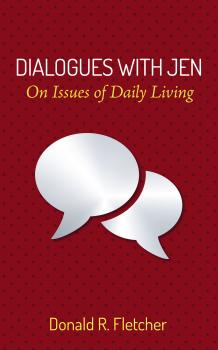ТОП просматриваемых книг сайта:
Donald R. Fletcher
Список книг автора Donald R. FletcherАннотация
This is the self-portrait of a missionary, minister, and teacher, at age 100, sharing the adventures of his childhood in Korea, exhilarating academic career at Princeton University, and then a lifetime of purposeful dedication to the ministry and to teaching. The author, a poet and gifted prose writer, engages the reader in beautiful landscapes of rural Korea, a trans-Siberian journey in the 1930s, his pioneering ministry in the desert of northern Chile, and the throes and conscientious commitment to civil rights in the 1960s. His life partnership with Martha, a church musician, features prominently in the book, as does their experience with her Alzheimer's disease. The writer shares moments of epiphany, and the discovery of God's will, represented by turning points in a life lived on three continents. More than just a memoir, this is a book full of devotional meaning and spiritual inspiration, for readers who enjoy a good story and excellent prose.
Аннотация
By Scalpel and Cross: A Missionary Doctor in Old Korea is the story of a Presbyterian medical missionary told against the background of Korea in the first half of the twentieth century, decades before the astounding rise of South Korea. Young Dr. Archibald G. Fletcher arrives in 1909, just before Japan annexes Korea. The dramatic, little-read history of early Christian missions is part of the story, as Arch, assigned to Taegu, confronts appalling diseases, poverty, and the scourge of leprosy. The reader gets to know Arch and his wife, Jessie, through their relentless effort to provide healing, in body and also in spirit, and the artful blend of practical entrepreneurship and compassion in Arch's pioneering treatment of leprosy. The book overflows with the sights and sounds of old Korea, and the experiences of a Westerner pressing the advance of medicine under Japanese rule. Arch and Jessie's story includes setbacks and disappointments–destruction by fire of their home and the medical dispensary, Arch's bout with tuberculosis, internment during WWII–yet the narrative is inspiring and uplifting. The reader shares a sense of God's providence, and of esteem for the Korean people–their generous spirit, and their extraordinary response to the Christian message.
Аннотация
In Dialogues with Jen: On Issues of Daily Living, five friends, representing three generations, get together to discuss contemporary topics that touch their lives. The six dialogues unfold dramatically, reflecting situations of the participants, who share personal insights, sometimes surprisingly. Jen, the senior member, suggests the lead topic of romantic love, and the discussion moves from carnal attraction to conscious, purposeful love, citing Shakespeare's «marriage of two minds.» Events of the tragic death of one member's sister and a terrorist attack witnessed by another member lead them to consider guilt, justice, and forgiveness. The dialogues are deeply rooted in spirituality, while not specific to any particular religious tradition. The author loosely draws on the classic Dialogues of Plato to develop arguments through the exchange of ideas of his fictional characters. This book is a sequel to Dialogues with Jay: On Life and Afterlife, but can be read independently.
Аннотация
Five people, representing three generations, meet to share some of their deepest thoughts. Luc and Don get together after thirty years, with their one-time mentor, Jay, and are later joined by Luc's daughter and her friend Ian.
Their dialogues, patterned roughly after Plato, start with Jay asking if death is just the end of life, or if there is more. Does science have an answer? Is there a soul or spirit, a reality that transcends the reality of our scientific universe of space and time? Or is an existence beyond this world and life just the indulgence of imaginative conjecture? Through the conversations of these friends, the dialogues provide an affirmation of life, of what it means to be a person, and of an afterlife beyond the boundaries of space and time.
The book's intent is to stimulate thoughtful reflection and discussion, while not advocating for any particular philosophical or religious position.
Their dialogues, patterned roughly after Plato, start with Jay asking if death is just the end of life, or if there is more. Does science have an answer? Is there a soul or spirit, a reality that transcends the reality of our scientific universe of space and time? Or is an existence beyond this world and life just the indulgence of imaginative conjecture? Through the conversations of these friends, the dialogues provide an affirmation of life, of what it means to be a person, and of an afterlife beyond the boundaries of space and time.
The book's intent is to stimulate thoughtful reflection and discussion, while not advocating for any particular philosophical or religious position.





